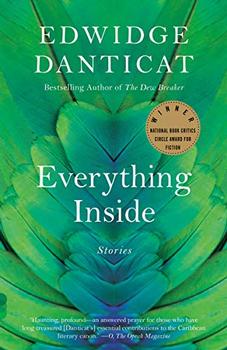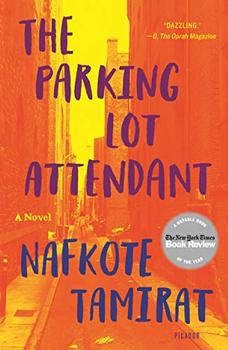Summary | Excerpt | Reviews | Beyond the book | Read-Alikes | Genres & Themes | Author Bio

From the title on, Leila Aboulela's sixth book asks readers to consider what it means to have a home, to leave a home behind, and to make a new one. Here, "home" refers not only to a particular place—many of the stories in the collection explore the culture shock between Aboulela's native Sudan and current city of Aberdeen Scotland—but also to the challenge of finding one's way within a culture, within relationships, and even within oneself.
Evoking the idea of a walking meditation, a number of the stories take place during travel, whether it be an international flight, or a bus trip around London. In these stories, literal journeys progress towards a finite endpoint as characters grapple with complex issues. The unnamed narrator of "Expecting to Give" is a woman in the early stages of pregnancy traveling around the city while her husband is away working on an oil rig. There is a sensory refrain revolving around her insatiable craving for tomatoes, with elaborate descriptions of putting ketchup on stale bread, and tomatoes themselves. The main character of "Coloured Lights" cries on a London city bus out of homesickness for Sudan before taking comfort in the fact that there is no word for "homesickness" in Arabic. "Something Old, Something New" centers around a palpably anxious British man who converted to Islam while visiting Khartoum to marry his Sudanese fiancée. In addition to the tension about their relationship, he imagines strangers punching him through the car window, and he can't even look at the Nile without wondering about the crocodiles at the bottom. The general chaos of travel amplifies the chaos of a major life change, and vice versa.
The tug of past and present cultures manifests in stirring, specific moments. In "Souvenirs," Yassir travels back to his native Sudan, though his British wife won't accompany him, only asking him to bring back paintings. Even as he's in his hometown among family, he becomes aware of how long it's been since he spoke English, and he misses his wife. The narrator of "The Ostrich" imagines that everything about her life in Khartoum was real and everything in London was a hallucination. This story details an expatriate's complicated feelings about a past love interest she sees on a plane and her more traditional husband. Her past acquaintance—known only as "the Ostrich" is rendered in perfect detail, including how he picked his nose while on a poetry-based game show. These colorful memories conflict with the woman's life with her husband, who wants to live by traditional Muslim gender roles, while also not appearing too exotic for London, giving new dimension to fractures that occur even within those of the same background.
These stories travel in space, but also in time. "The Ostrich" relies on the bittersweet reminiscence that only comes with the passage of years. The nameless male protagonist of "Something Old, Something New" meets his fiancée after a chance encounter with a former teacher inspires soul-searching and a visit to the mosque. Yassir's journey in "Souvenirs" is not merely a return to his homeland but also to his family life.
Aboulela excels at giving equal weight not only to the high-stakes drama of cultural differences, but also more focused concepts, like a schoolgirl's nearsightedness in "Farida's Eyes," or a restaurant worker's inability to cook rice, symbols of their cultural displacement. These stories are quiet in ways that highlight tensions of daily life rather than large-scale cataclysm. In the details, we see that these themes aren't about being Sudanese or British specifically, but the simultaneous sense of belonging and alienation familiar to us all.
![]() This review
first ran in the May 15, 2019
issue of BookBrowse Recommends.
This review
first ran in the May 15, 2019
issue of BookBrowse Recommends.

If you liked Elsewhere Home, try these:

by Edwidge Danticat
Published 2020
From the internationally acclaimed, best-selling author of Brother, I'm Dying, a collection of vividly imagined stories about community, family, and love.

by Nafkote Tamirat
Published 2019
A mesmerizing, indelible coming-of-age story about a girl in Boston's tightly-knit Ethiopian community who falls under the spell of a charismatic hustler out to change the world
Your guide toexceptional books
BookBrowse seeks out and recommends the best in contemporary fiction and nonfiction—books that not only engage and entertain but also deepen our understanding of ourselves and the world around us.